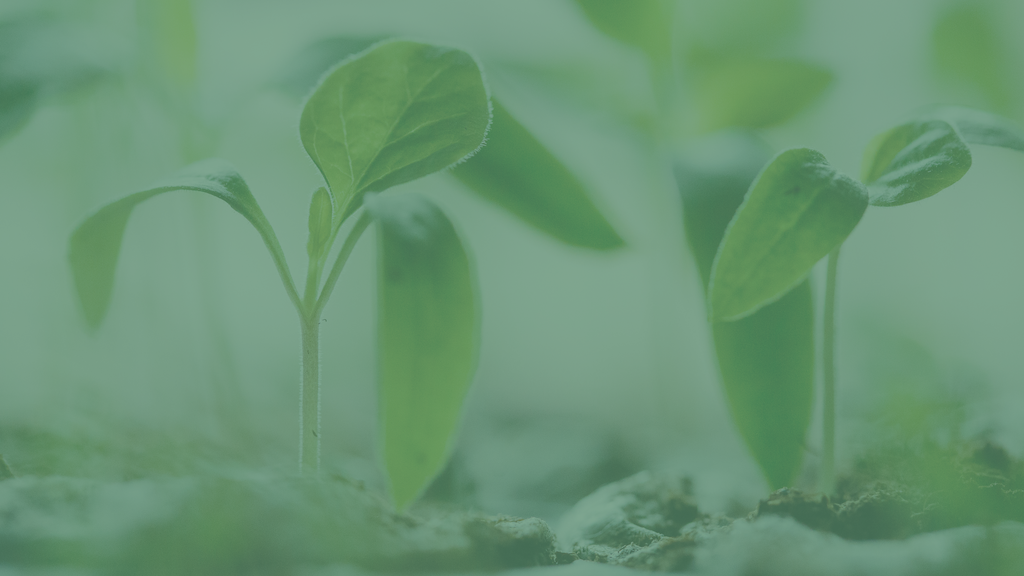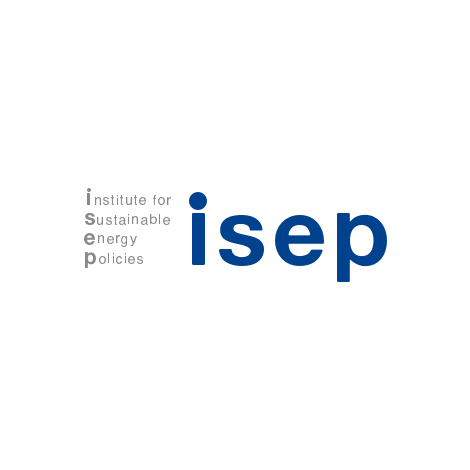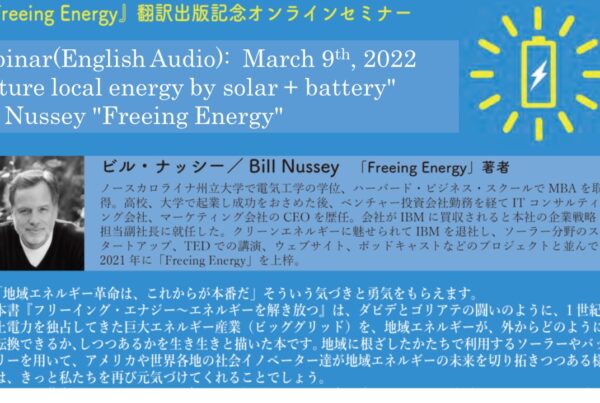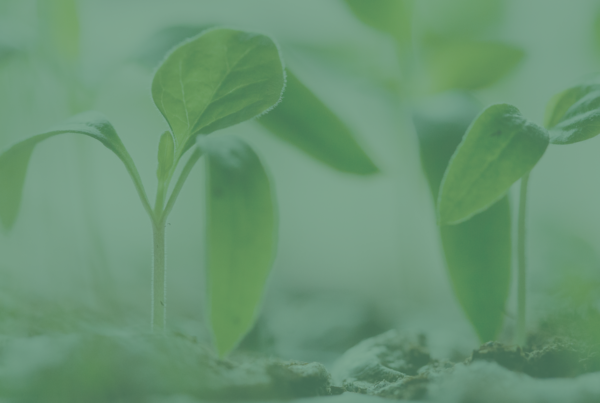Institute for Sustainable Energy Policies is pleased to invite you to the 2nd webinar on “Farming meets solar power in Africa: food and energy security for sustainable African communities towards post COVID-19 society” co-hosted by Mali-Folkecenter Nyetaa.
Report on the Webinar
This webinar series aims to spread knowledge and expertise to many people in Africa and around the world. Therefore, we were excited to hear from Hamadoun Maiga about the newly established Vocational Training Center in Selingué, Mali, which follows a similar pursuit. The center’s mission is to promote innovation and industrial development by providing local expertise on renewable energy, climate, and technological innovation to enhance economic security and improve the quality of life for all Africans.
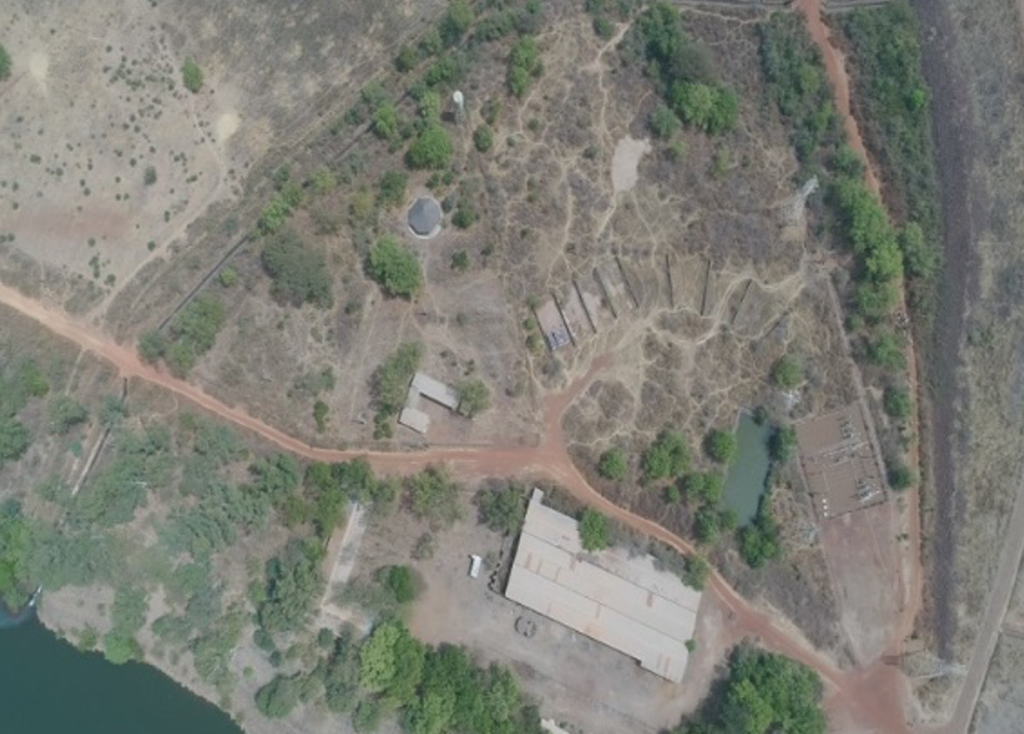 Next up, Masafumi Shigeie, CEO of the Waku-Waku Solar Sharing Farm, presented the practical experiences in the last 5 years of operating a 38kW agrivoltaics system in Hiroshima, Japan. As a former banker, Mr. Shigeie was eager to lower the cost of the agrivoltaic system by, for example, reducing installation costs by using a Do-It-Yourself approach or choosing manual instead of automatic turnable solar panels.
Next up, Masafumi Shigeie, CEO of the Waku-Waku Solar Sharing Farm, presented the practical experiences in the last 5 years of operating a 38kW agrivoltaics system in Hiroshima, Japan. As a former banker, Mr. Shigeie was eager to lower the cost of the agrivoltaic system by, for example, reducing installation costs by using a Do-It-Yourself approach or choosing manual instead of automatic turnable solar panels.
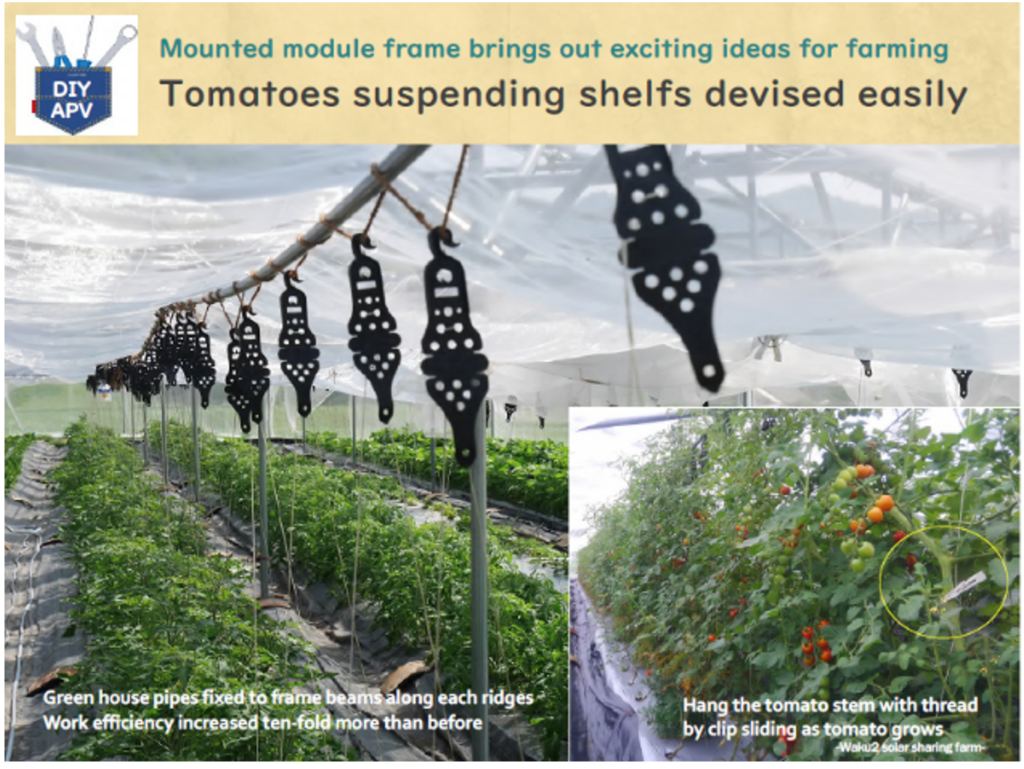 Moreover, Mr. Shigeie shared his experiences of planting various crops, like Okura, green soybeans, lettuces, broccoli, and carrots under solar panels with a shading rate of 33%. Especially interesting was his way of utilizing the mounting frame of the agrivoltaic system for growing tomatoes on suspending shelves. Additionally, fine mesh nets were installed on the mounting frames to cover the crops underneath. This way, the number of harmful insects/pests and birds can be minimized, and consequently, the use of pesticides can be reduced.
Moreover, Mr. Shigeie shared his experiences of planting various crops, like Okura, green soybeans, lettuces, broccoli, and carrots under solar panels with a shading rate of 33%. Especially interesting was his way of utilizing the mounting frame of the agrivoltaic system for growing tomatoes on suspending shelves. Additionally, fine mesh nets were installed on the mounting frames to cover the crops underneath. This way, the number of harmful insects/pests and birds can be minimized, and consequently, the use of pesticides can be reduced.
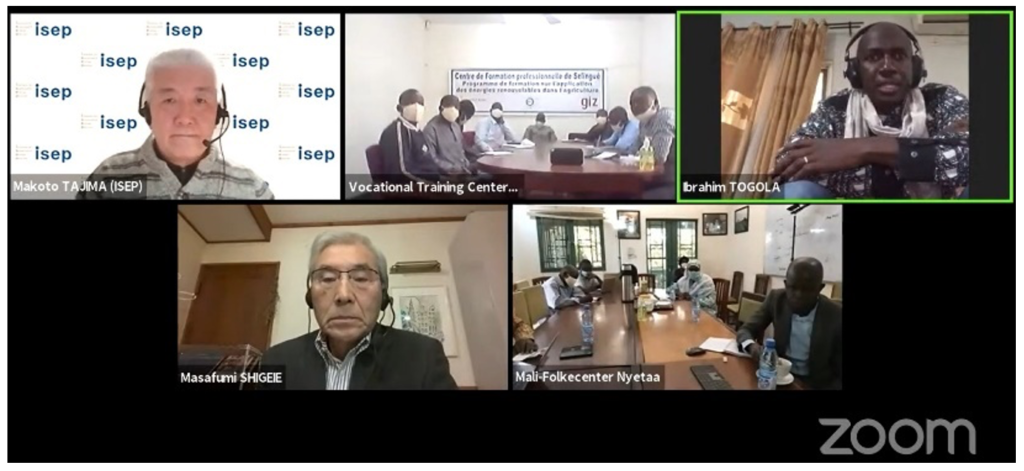 The panelist agreed in the following discussion that agrivoltaics would also benefit small-scale farmers in Mali. Malian farmers can reduce their costs and enhance their productivity by following the many valuable and practical tips of Mr. Shigeie. Some of the benefits might be even greater in Africa, where the solar radiation is much stronger than in Hiroshima. Agrivoltaic systems could, for example, reduce heat stress and offer much-needed shade for the farmers working in the fields.
The panelist agreed in the following discussion that agrivoltaics would also benefit small-scale farmers in Mali. Malian farmers can reduce their costs and enhance their productivity by following the many valuable and practical tips of Mr. Shigeie. Some of the benefits might be even greater in Africa, where the solar radiation is much stronger than in Hiroshima. Agrivoltaic systems could, for example, reduce heat stress and offer much-needed shade for the farmers working in the fields.
Please feel free to watch the recorded webinar on YouTube if you are interested in hearing the full presentations and discussion. We also included French subtitles for our francophone audience.
This seminar series is perfect for you if you want to:
- Improve livelihood of African rural population, and
- Be sustainable economically, socially, and environmentally.
Through this seminar series, you will learn:
- Benefit of agrivoltaics, and
- Practical applications of agrivoltaics to your local context.
Date & Time
Date: December 10, 2020
Time: GMT 9:00 – 10:15 / JST 18:00 – 19:15
Program
1. Presentation: Agrivoltaics for small-scale farmers
-
Masafumi SHIGEIE, Waku Waku Solar-Sharing Farm (Hiroshima, Japan)
- Shigeie will share with you a number of appropriate technologies in agrivoltaics that are applicable to small-scale, household-level farmers in Africa.
2. Discussion
- Discuss how to apply agrivoltaics for small-scale farmers with active participation of Mali farmers from newly established “Renewable energy and agriculture Training Center.”
Hosts
International Webinar Series on Agrivoltaics in Africa
Agrivoltaics is an economically and environmentally rational technology to produce both food and electricity on your farm or PV plants at the same time. It is rapidly gaining popularity in many countries but not yet in Africa.
It is important to consider unique situation of African countries to localize agrivoltaic technology. Therefore, in this seminar series, we will listen from both sides, from African countries and from agrivoltaic-rich countries to find a feasible way to introduce agrivoltaics to Africa. We will hold a webinar at least once a month, focusing on a different aspect of agrivoltaics each time.
Previous Webinar
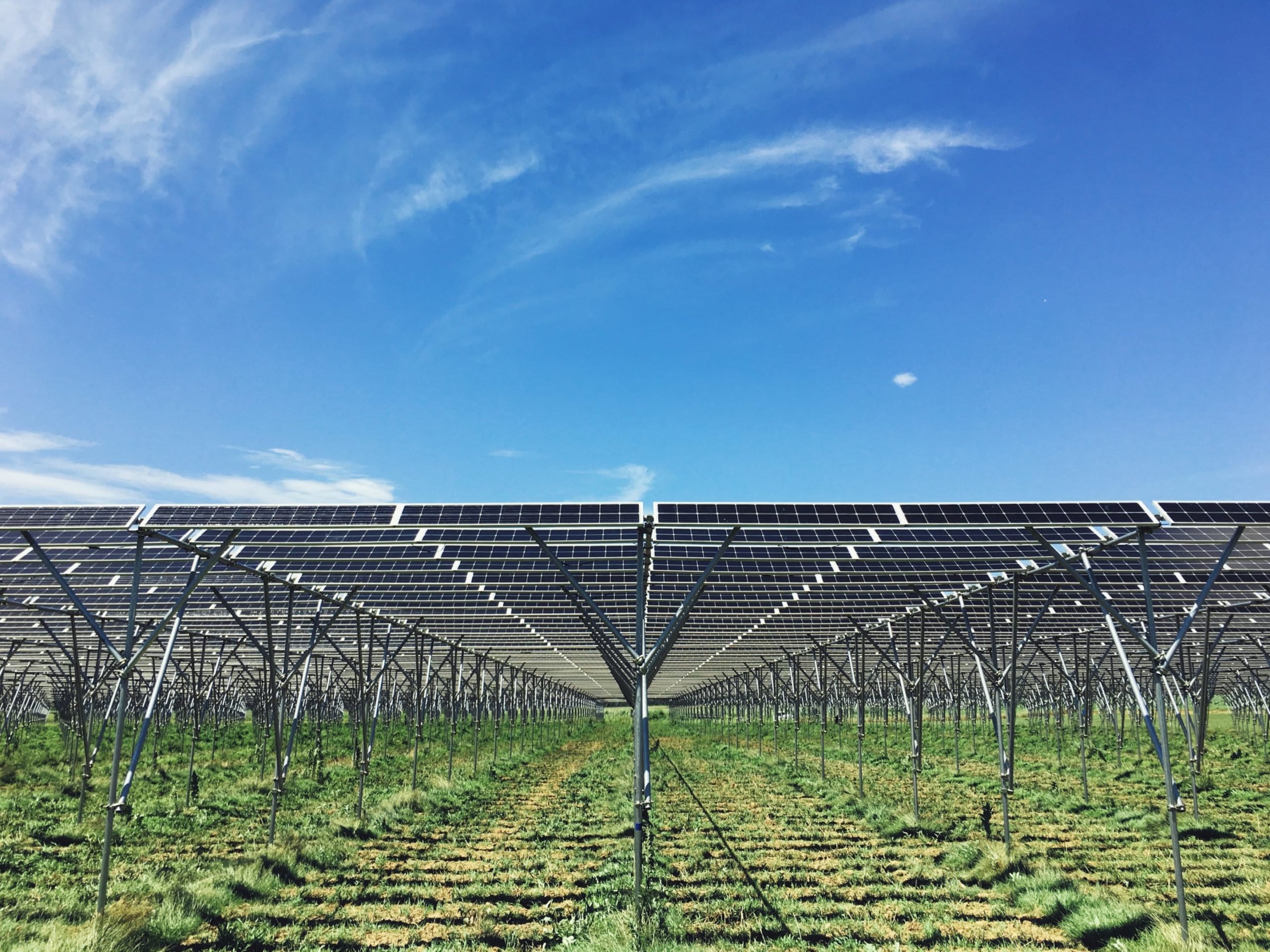
Contact
Institute for Sustainable Energy Policies
Mr. Makoto Tajima
Please send message via contact form.

